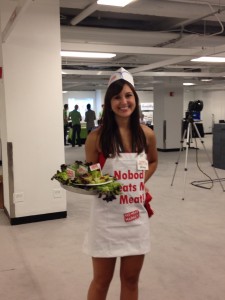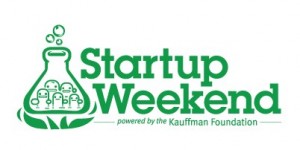 Triage.me is a solution for one of the biggest issues within the U.S. healthcare system – unnecessary trips to the Emergency Room. At the Milwaukee BuildHealth Hack-a-thon this idea was born from the challenge: “Reduce the number of ED (Emergency Department) visits for non-emergent care in Milwaukee County.”
Triage.me is a solution for one of the biggest issues within the U.S. healthcare system – unnecessary trips to the Emergency Room. At the Milwaukee BuildHealth Hack-a-thon this idea was born from the challenge: “Reduce the number of ED (Emergency Department) visits for non-emergent care in Milwaukee County.”
We recently finished the second leg of our “Nibletz Sneaker Strapped Nationwide Road Trip.” We met Moxe Health’s CEO Dan Wilson while in Madison, his CTO was not available but I was able to find his description about how Triage.me works:
Providing people with the tools they need to find appropriate care everywhere saves everyone, hospitals and patients, money and time. Patients receive a SMS from triage.me post emergency room discharge. By sending a text to triage.me with their problem and current address, we route the person towards the nearest clinic, providing the address and a link to directions (for smartphone users). Many clinics that work with the underinsured also often have variable hours and locations. We’ve made it easy for these clinics to update their hours and location via SMS so that we can better route triage.me users to locations.
This is a huge issue that faces the current health care system, the CDC (Centers for Disease Control and Prevention) estimates that 50% of the 121 million emergency room visits in 2011 could have been handled in a primary care situation. The typical emergency room visit costs an average of $700 versus $150 for a primary care physician possibly reducing costs by $550.
We met Moxe Health’s Dan Wilson (CEO) while we were at Murfie HQ in Madison Wisconsin (coverage coming soon). He began explaining where the idea for triage.me began and where they’ve presented so far. It began at BuildHealth and a few weeks later they presented at Health Data Initiative: Health Datapalooza
A mere 50 days separated the two events and Dan blogged a few times about the experience:
Blog post 2…We’re now full steam ahead on triage.me and have some exciting things in store. Exactly 50 days after conceptual, triage.me will launch on June 5 for public use in Milwaukee and DC. We’ve started mapping out ways to expand triage.me to make it even better.
Blog post 3…So, we had 4 weeks to design a booth and rewrite an entire product. Oh, and Mark was already committed to working 30 hours a week in Chicago. We called in whatever favors we could muster and got some wonderful help from Abby Larner reworking the front-end design. Aurora stepped in to help with the booth and drove one of their display boards across the city so we could pick it up.
Where are we now? Mark and I are fully committed to building triage.me into the platform we know it can be. We’ve received a lot of positive feedback and guidance over the last few weeks and there ia a lot of thanks due.
Stay tuned, this ride’s just getting started!
Triage.me was presented at the Health Datapalooza (video below). Descriptions of both BuildHealth and HDI can be found below.
triage.me [Moxe Health] from HDI Forum on Vimeo.
BuildHealth is a context design for enabling collaborative conversation, engagement and accountability around the idea of good health.
Our definition of health is holistic: it is being physically, mentally, emotionally, economically, environmentally and socially balanced. With such a broad definition, the mission is currently focused on the Greater Milwaukee area in order to be effective. The core functions of the BuildHealth organization are facilitation and community alignment. Our intent is to avoid duplication of services, to overcome silo-ing and territorialization and to empower community at its most basic level. We believe each community already has what is needs to become accountable for its state of health.
Health Data Initiative’s: Health Datapalooza
The Health Data Initiative Forum III: The Health Datapalooza was held June 5 and 6, 2012, at the Walter E. Washington Convention Center in Washington, D.C. The event brought together a diverse group of more than 1,500 data experts, technology developers, entrepreneurs, policy makers, health care system leaders, and community advocates to support innovative applications of health and health care data.
Links to Everywhere Else:
Moxe Health Applications triage.me
Nibletz is the voice of startups “everywhere else” here are more stories from “everywhere else”
Nibletz could use YOUR help click here















